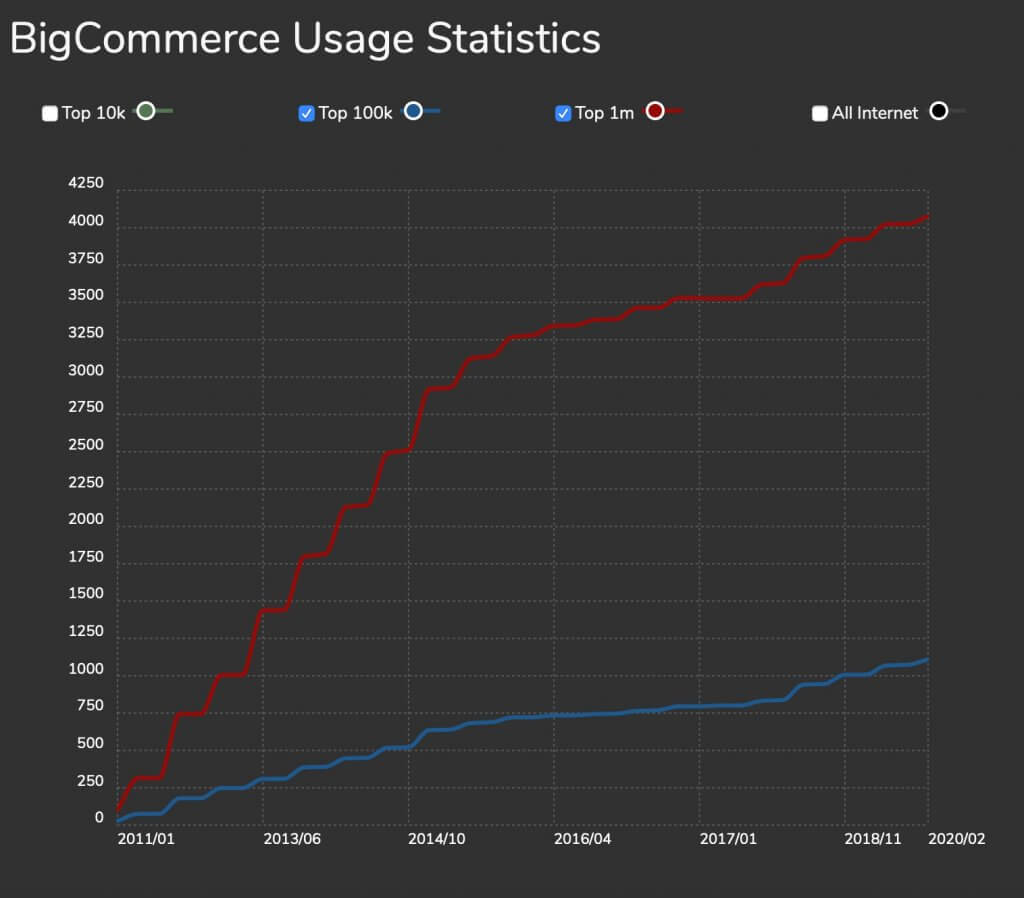Let’s take you have decided to start your eCommerce business. Now it’s time to pick the right eCommerce solution for your business. But how will you do it? It’s very crucial and hard to pick the right solution. As many eCommerce solutions are available in the market, finding the right one is like finding the needle in the grass.
In this article, we are going to compare Magento VS BigCommerce, including various features.
Hosting Cost
Hosting creates the major difference between the two platforms. Magento is self-hosted, which means storekeepers should pay an outsider organization for hosting. Magento consumes a lot of resources, due to which strong hosting plans are required. This means you need a good and expensive hosting plan to manage your site. This is an additional expense and ideal choice for cutting-edge eCommerce storekeepers.
On the contrary, BigCommerce is the hosted platform, which means you do not have to find and pay for separate hosting. BigCommerce takes care of everything, making it an ideal solution that is just started with the online store.
Pricing of Both Platforms
Both platforms offer multiple plans based on the size of the business. Pricing majorly influences them in making a choice.
Pricing of Both Platforms
BigCommerce

The plan you select should be based on the number of orders you are getting. Lower the price you pay, lower the features you will play with. To back this, the standard plan does not include an abandoned cart saver, product filtering, and other features you might need.
The pro plan starts at $299.95/mo for under $400K in online deals, the valuing may increment if the online deals increment.
The plans also come with different credit and processing rates, on top of a monthly charge for the software, which is an additional cost. Assuming you are making a ton of deals, the exchange charges can rapidly pile up.
Magento
Magento, on the other hand,, is an open-source solution, which means it is free to use. Users only need to pay for hosting to get their store launched. Apart from being open-source, it also offers other plans.
Community Edition: Free of Cost
Enterprise Edition: Customized pricing based on the requirements of the user.
Popularity and Market Share
The popularity of the platform may vary among eCommerce stores and the general public. However, the market share of Magento is more than BigCommerce. Of the top 1 million eCommerce sites, 1.12% operate through Magento, whereas only 0.42 uses BigCommerce.
Of the top 10% of eCommerce destinations, just 1% use BigCommerce, though the clients of Magento 2 are 1.51%. In terms of large-scale businesses, Magento beats BigCommerce.

Features and Functionalities
Both are feature-rich platforms that enable the user to integrate the addons or plugins to boost performance. BigCommerce offers marketing tools, some payment gateways, and more built-in features. However, Magento offers way more robust features as compared to BigCommerce. Features like catalog management, item Browsing, client record, and more.
BigCommerce accompanies 100 distinctive additional items, with the paid choices requiring regularly scheduled installments. Magento offers way more add-ons at its marketplace; many are paid. This means the store owners can add any imaginable features to their store.
Simple usage brings the limitation in features, so BigCommerce is.
Easiness in Usage
Another factor that impacts the selection decision is how easy it is to use, especially for beginners. Taking this into account, BigCommerce is more beginner-friendly to use than Magento. Magento requires a deep learning curve, which might be suitable for the developers. Else you might have to hire a developer to perform the task.
BigCommerce has a reasonable, clean dashboard that makes it easy for the client to get their site going in a matter of moments. The solution comes with the website builder that permits you to construct and deal with your store without having information on coding.
SEO
SEO is the short form of Search Engine Optimization. In a nutshell, it is a free way to rank your website or store. It is a very important aspect of the success of the online business. Around 93% of online purchase begins with an online search.
In the context of SEO, Magento wins the race as compared to BigCommerce. This means if you increase your store traffic and visibility then Magento is your way to go.
Pros and Cons of BigCommerce
Pros
- Cost is lower to get started
- Easy to use and manage
- Powerful themes
- Unique functionalities
- Built-in Security
Cons
- The additional price of Threshold
- Free themes are limited
- Lack of customization options
- Can be expensive
Pros and Cons Magento
Pros
- It is free to start
- Great For SEO
- Offers scalability
- Additional features through Add-ons
- The bigger community of developers
Cons
- Requires deep learning curve
- It can be difficult to use
- Hosting might be too expensive
Conclusion
When selecting between the eCommerce platforms like Magento and BigCommerce, it is important to weigh the pros and cons and the features they provide. Also, it depends on what is the size of your company and budget.
If you are looking for a high-end solution to handle heavy traffic then Magento is good for you. Despite what is generally expected, assuming you are searching for a mid-level arrangement, BigCommerce may be the thing you need.
Feel free to contact us, in case of any query.













